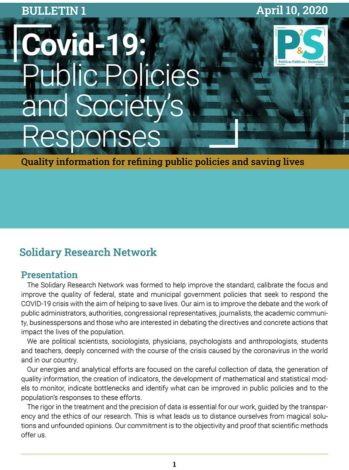Bulletins
All Bulletins
While states have registered a significant increase in ICMS revenues in the 1st Semester of 2021, the lack of national coordination and strategy for the use of resources hinder educational policies and puts an entire generation at risk
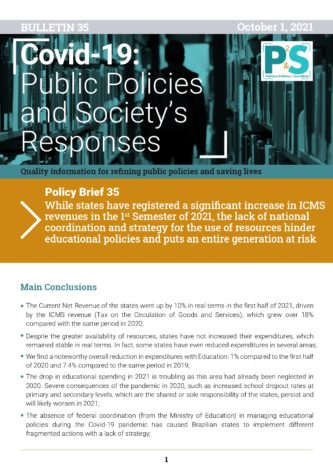
In 2020, the lack of efforts by the Ministry of Education and the Ministry of Economy to coordinate education policies and fiscal aid aggravated regional inequalities. States with lower GDP per capita were hardest hit and also presented the worst remote learning education plans. Nonetheless, in 2021, states improved their remote learning programs for public education, and those which preserved their education budgets in the year prior performed better.
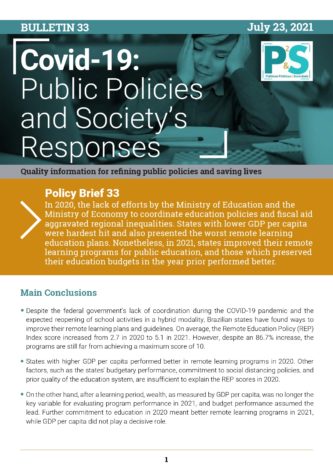
As States and Municipalities Resume In-person School Activities, Improved Risk-Prevention Protocols are Necessary to Ensure Greater Safety for Students and Education Professionals
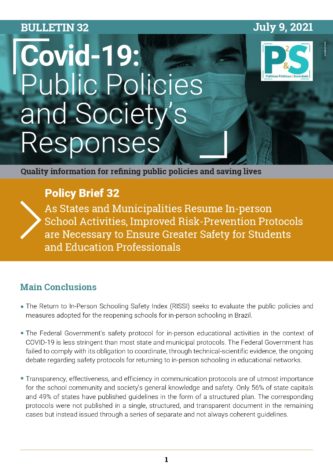
The Scope and Depth of Attacks on the CoronaVac Vaccine by the President of the Republic and Politicians on Social Media is greater than imagined and may affect Vaccination in Brazil with the Strengthening of Anti-vaccine Groups
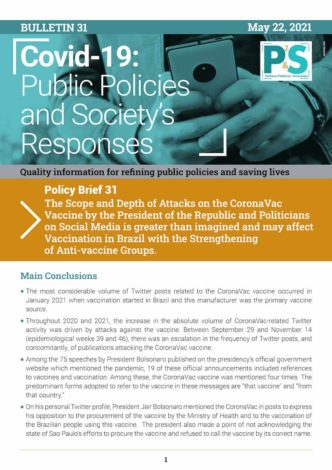
More stringent policies to combat the COVID-19 epidemic are necessary as the situation worsens in São Paulo. The state government’s zigzag approach has failed to prevent the spread of the virus and maintains it as the epicenter of the pandemic in Brazil
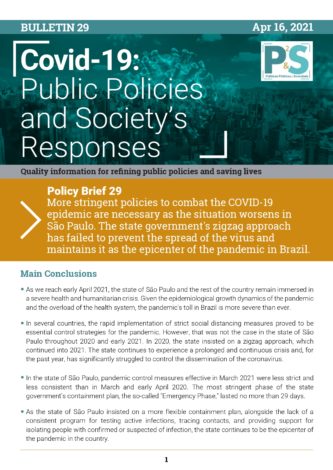
Federal fiscal aid to the states maintained the 2020 tax revenue at the same level as 2019. However, there was an uneven distribution of resources for health. Average expenditure on education dropped by 9%, even in the states with increased ICMS revenues
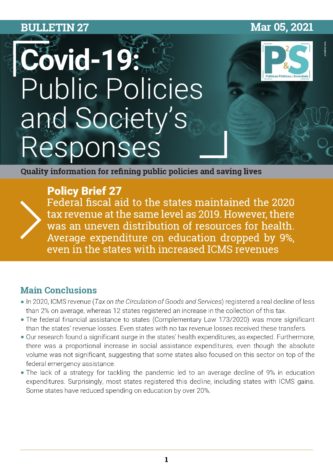
Brazil’s largest capital, the city of São Paulo, continues to register High COVID-19 Risk Levels. Mitigation measures were moderate and enforcement was limited.
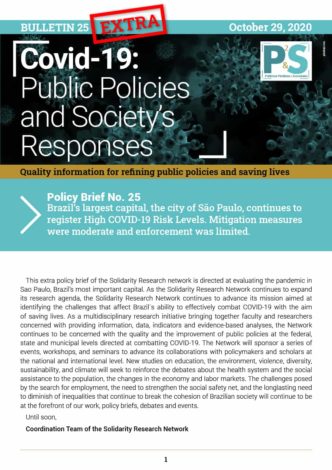
Community leaders believe that increasing risk among elderly people, persistent hunger, children without classes, and parents concerned about the lack of structure in schools have heightened the tragedy in vulnerable communities. As a counterpoint, they hope for a lasting sense of solidarity sparked by pandemic.
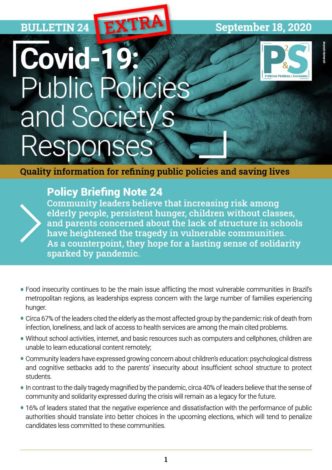
Without clear guidelines for remote education and reopening schools, the Federal Government repeats the health tragedy in education. Millions of children stayed at home without school activities while the poorest have lost up to 50 school days.
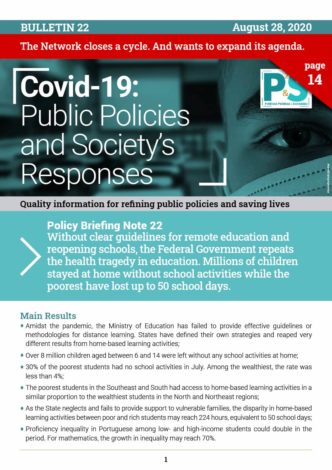
The use of masks is a low cost and efficient measure to contain the transmission of Sars-Cov-2. Brazil’s Federal Government has underestimated its importance. States have used the measure as a means for relaxing social distancing policies rather than for containment.
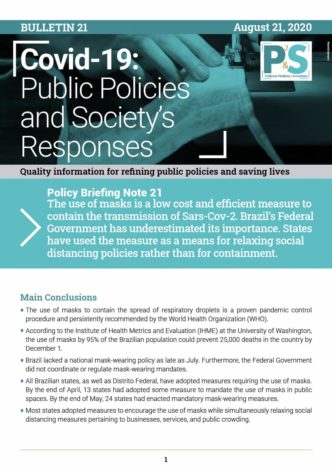
Lacking a strategy, the Federal Government foments the country’s fragmentation and fails to coordinate the fight against COVID-19. The demobilization of the Ministry of Health, alongside disorganized testing and social distancing policies, dramatically exposes the Government’s failure for tackling the pandemic and Brazil’s tragic lead in the number of new deaths-per-million inhabitants, overtaking the United States.
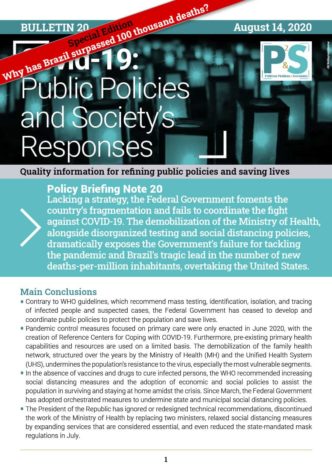
Pandemic reduces brazilian exports of high complexity goods. Emergency public actions are necessary to prevent an even worse regression of the economy’s competitiveness
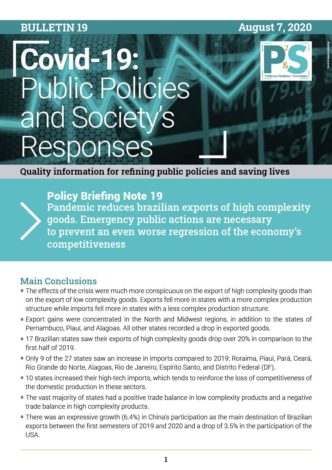
Pandemic remains severe, public policies fail, and compliance to social distancing decreases. Brazilian tragedy quickly approaches the 100,000 deaths mark. New actions are necessary
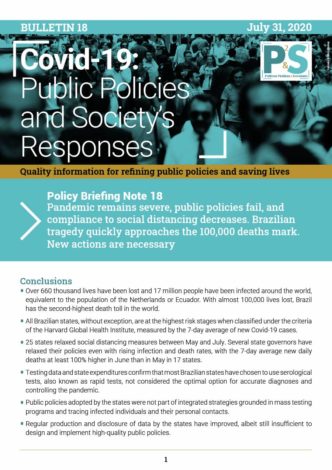
Hunger Persists in Vulnerable Communities Alongside New Dimensions of Violence. Distrust in the Decisions to Relax Social Distancing Hinders the Containment of the COVID-19 Pandemic
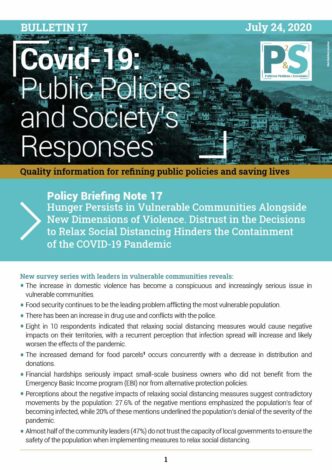
Coronavirus crisis brings changes to to homebased work and telework. Digital divide leads to drop in income and reduces economic activity
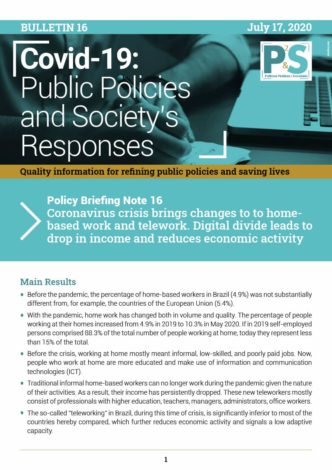
The federal emergency basic income program has positive effects on the income of the most vulnerable population, but fails to reduce mobility. The lack of an integrated strategy undermines the effectiveness of the measures against the pandemic
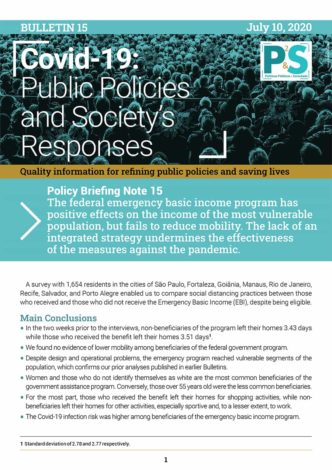
Dramatic unemployment remains hidden in official indicators. Without the emergency income of R$ 600.00, poverty would reach 30% of the population
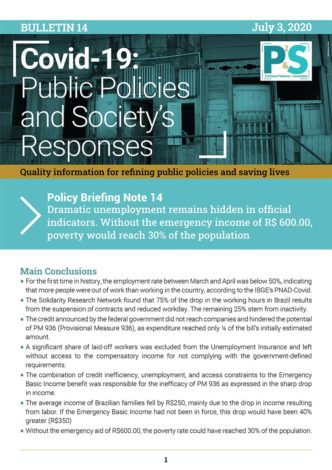
Differentiated Strategies and Lack of Testing Benchmarks Hinder Pandemic Response, Undermine Social Distancing Decisions, and Further Increase Insecurity
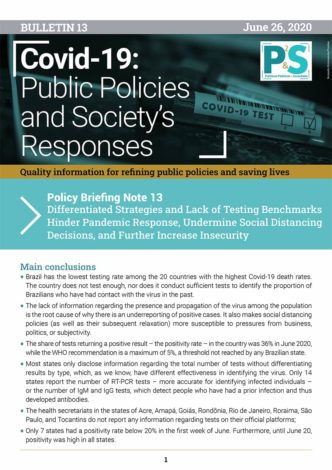
Rise in Covid-19 Deaths and Infections in Vulnerable Communities Aggravate Perception of Helplessness and Risk to Survival
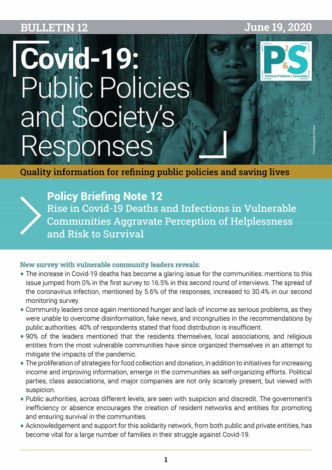
Easing of Social Distancing Guidelines in the State of Goiás raised the death toll by 274%. A similar policy in São Paulo could triple the number of deaths in the next 30 days
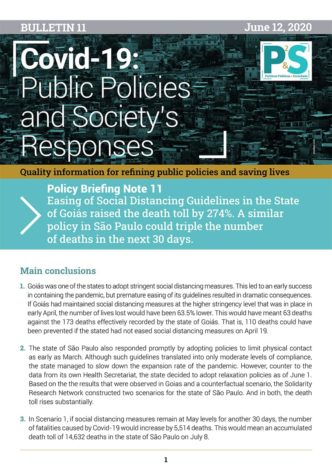
Covid-19 ICU beds: Shortcomings, inconsistencies, and disparities in federal and state government data impair the assessment and evaluation of policies
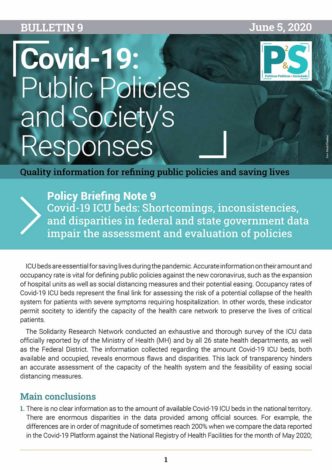
Emergency benefit providing R$600 needs to continue and could be funded by emergency contribution on high incomes
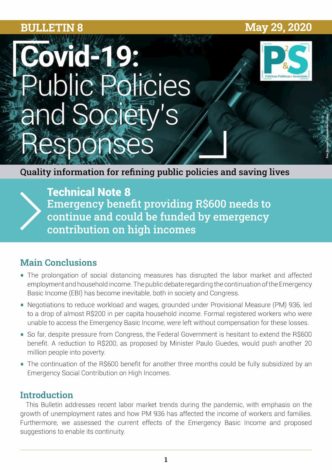
Hunger, unemployment, disinformation and psychological suffering advance violence and hopelessness in vulnerable communities in six Brazilian metropolitan regions
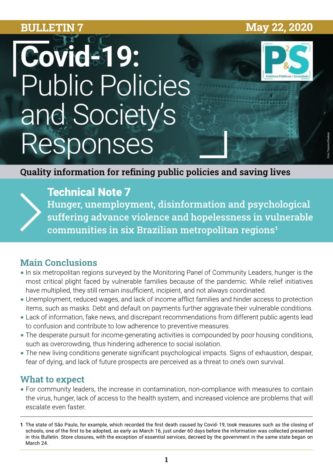
Subpar investments and lack of a strategy for research and innovation will hinder Brazil’s way out of the crisis
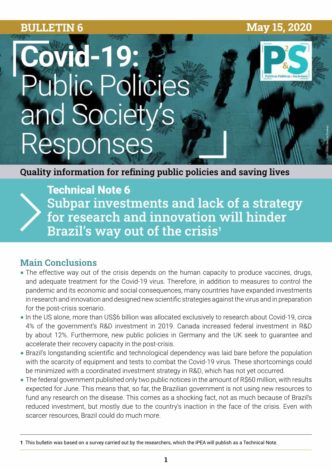
Difficulties with the mobile application and failure to use the existing safety net hinder access to emergency income
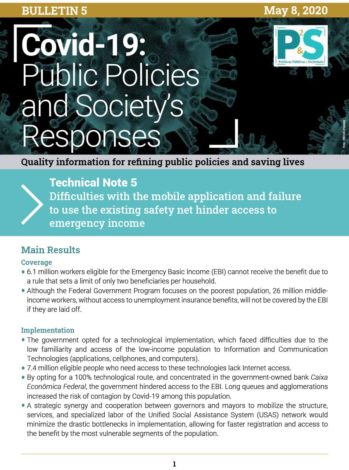
Lack of coordination between the Federal government and states undermines social distancing policies. Increased and unregulated relaxation could aggravate the pandemic
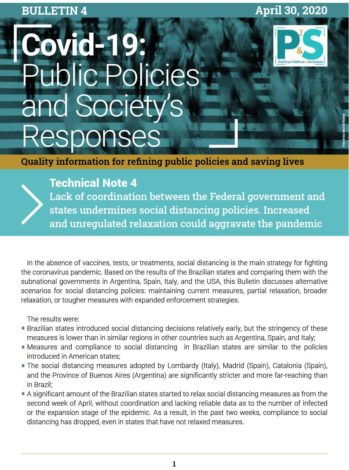
Black men and black women are the most vulnerable in the crisis. However, a “new vulnerable” group emerges, white men and white women in non-essential services
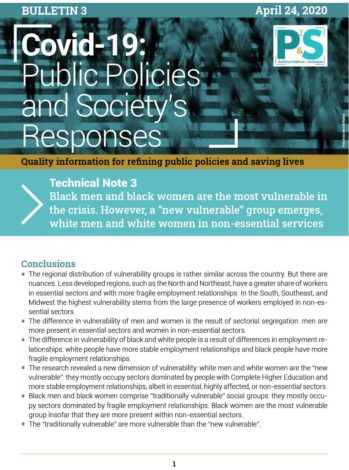
The vulnerability of Brazilian workers amid the Covid-19 pandemic
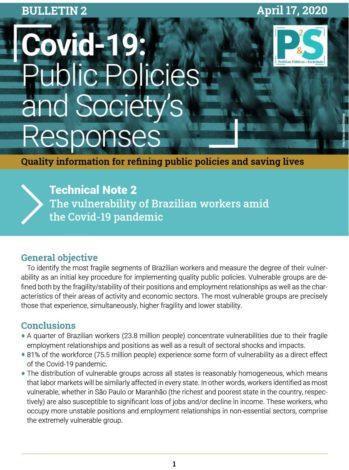
Social Distancing Policies for Confronting COVID-19: The Brazilian States
